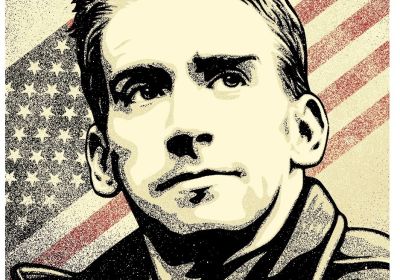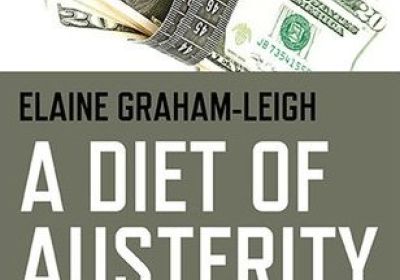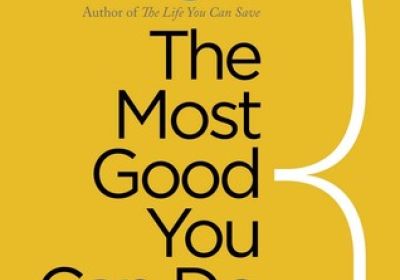 FBI raid in Miami gathering evidence on FIFA. May, 2015.
The Dirty Game: Uncovering the Scandal at FIFA
Andrew Jennings
Arrow Books, 2016
305 pages
The unravelling of the empire of Sepp Blatter, the multi-millionaire president of world football, began in 2014.
FBI raid in Miami gathering evidence on FIFA. May, 2015.
The Dirty Game: Uncovering the Scandal at FIFA
Andrew Jennings
Arrow Books, 2016
305 pages
The unravelling of the empire of Sepp Blatter, the multi-millionaire president of world football, began in 2014.
-
 FBI raid in Miami gathering evidence on FIFA. May, 2015.
The Dirty Game: Uncovering the Scandal at FIFA
Andrew Jennings
Arrow Books, 2016
305 pages
The unravelling of the empire of Sepp Blatter, the multi-millionaire president of world football, began in 2014.
FBI raid in Miami gathering evidence on FIFA. May, 2015.
The Dirty Game: Uncovering the Scandal at FIFA
Andrew Jennings
Arrow Books, 2016
305 pages
The unravelling of the empire of Sepp Blatter, the multi-millionaire president of world football, began in 2014.
-
 Ten-time Grammy Award winner, US musician Pharrell Williams has cancelled his July 21 performance in Tel Aviv amid conflicting explanations. Over the past year, the “Happy” pop star has faced sustained pressure from the Palestine solidarity movement. Last year, amid rumours that he would be scheduling a Tel Aviv performance, campaigners urged him not to go. In an open letter, the US Campaign for the Academic and Cultural Boycott of Israel said that by performing in Tel Aviv, Williams would show himself “indifferent to the suffering of Palestinian children”.
Ten-time Grammy Award winner, US musician Pharrell Williams has cancelled his July 21 performance in Tel Aviv amid conflicting explanations. Over the past year, the “Happy” pop star has faced sustained pressure from the Palestine solidarity movement. Last year, amid rumours that he would be scheduling a Tel Aviv performance, campaigners urged him not to go. In an open letter, the US Campaign for the Academic and Cultural Boycott of Israel said that by performing in Tel Aviv, Williams would show himself “indifferent to the suffering of Palestinian children”. -
 Tomas Young's War Mark Wilkerson Haymarket Books, 2006 225 pages, US$17.95 Tomas Young never even fired his weapon. He was gravely wounded on his fifth day in Iraq in 2004. What followed was a story of unimaginable grit, courage, love, inspiration — and tragedy.
Tomas Young's War Mark Wilkerson Haymarket Books, 2006 225 pages, US$17.95 Tomas Young never even fired his weapon. He was gravely wounded on his fifth day in Iraq in 2004. What followed was a story of unimaginable grit, courage, love, inspiration — and tragedy. -

American singer Alicia Keyes has produced a short feature that reimagines the current refugee crisis as if it were taking place in California. The refugee crisis in the wake of conflicts in the Middle East and North Africa has triggered many militant xenophobic responses.
-
 Diet of Austerity: Class, Food & Climate Change By Elaine Graham-Leigh Zero Books, 2015 Like the author of this interesting book on food and climate change, I have been struck by the way that the question of diet, and in particular meat eating, has become central to debates on tackling climate change.
Diet of Austerity: Class, Food & Climate Change By Elaine Graham-Leigh Zero Books, 2015 Like the author of this interesting book on food and climate change, I have been struck by the way that the question of diet, and in particular meat eating, has become central to debates on tackling climate change. -

The Art of Charlie Chan Hock Chye is the account of the life of a Singaporean comic book artist who started drawing at the age of 16. From that point, his work depicts his life story in parallel to that of the history of Singapore.
-
 The Most Good You Can Do: How Effective Altruism Is Changing Ideas about Living Ethically By Peter Singer Yale University Press, 2015 272 pages Living up to his moral philosophical tradition of utilitarianism, with its “greatest good” principle, Australian philosopher Peter Singer's latest instalment is The Most Good You Can Do. The book — endorsed by software monopolists and corporate philanthropists Bill and Melinda Gates — is based on Singer's “Castle Lecture” at Yale University in 2013.
The Most Good You Can Do: How Effective Altruism Is Changing Ideas about Living Ethically By Peter Singer Yale University Press, 2015 272 pages Living up to his moral philosophical tradition of utilitarianism, with its “greatest good” principle, Australian philosopher Peter Singer's latest instalment is The Most Good You Can Do. The book — endorsed by software monopolists and corporate philanthropists Bill and Melinda Gates — is based on Singer's “Castle Lecture” at Yale University in 2013. -
-
 Zero K By Don DeLillo Simon & Schuster, 2016 Don DeLillo is known as one of America’s great authors, standing out for his effortless wisdom. So, now at 81, it is of no surprise that DeLillo tackles death and immortality in his recent novel Zero K. Having foreshadowed the horror of 9/11 (Underworld), the Great Financial Crisis and Occupy Movement (Cosmopolis) and the anthrax scare (White Noise), Zero K is his literary prophecy of the commodification of the last dignity: death.
Zero K By Don DeLillo Simon & Schuster, 2016 Don DeLillo is known as one of America’s great authors, standing out for his effortless wisdom. So, now at 81, it is of no surprise that DeLillo tackles death and immortality in his recent novel Zero K. Having foreshadowed the horror of 9/11 (Underworld), the Great Financial Crisis and Occupy Movement (Cosmopolis) and the anthrax scare (White Noise), Zero K is his literary prophecy of the commodification of the last dignity: death. -
 It was with great sadness I heard of the death of David Page, one of the greatest entertainers Australia has produced in recent times. He was a famous child singer at the age of 14, an actor, musician, composer, dancer, playwright and story teller. He was also a proud Nunukul and Munaldjali man from south-east Queensland. He was not afraid to admit his homosexuality. He was also the brother of Stephen and Russell Page of the Bangarra Dance Theatre, where he had enjoyed a long and rich artistic career.
It was with great sadness I heard of the death of David Page, one of the greatest entertainers Australia has produced in recent times. He was a famous child singer at the age of 14, an actor, musician, composer, dancer, playwright and story teller. He was also a proud Nunukul and Munaldjali man from south-east Queensland. He was not afraid to admit his homosexuality. He was also the brother of Stephen and Russell Page of the Bangarra Dance Theatre, where he had enjoyed a long and rich artistic career. -
-
 Eight short months ago, much of the population celebrated Malcolm Turnbull's ascension to power. Small-l liberals were drunk with joy and rumour has it that even some self-styled socialists joined the love-in. Turnbull was the Great White Knight who had slain the Abbott Dragon. He would turn the political rudder to the left, so we were told, and we would all live happily ever after. Many writers, no doubt, were also sucked in by this master of spin and his chorus of sycophants. Eight months on, the illusions of those spring days pile up like dead leaves.
Eight short months ago, much of the population celebrated Malcolm Turnbull's ascension to power. Small-l liberals were drunk with joy and rumour has it that even some self-styled socialists joined the love-in. Turnbull was the Great White Knight who had slain the Abbott Dragon. He would turn the political rudder to the left, so we were told, and we would all live happily ever after. Many writers, no doubt, were also sucked in by this master of spin and his chorus of sycophants. Eight months on, the illusions of those spring days pile up like dead leaves.